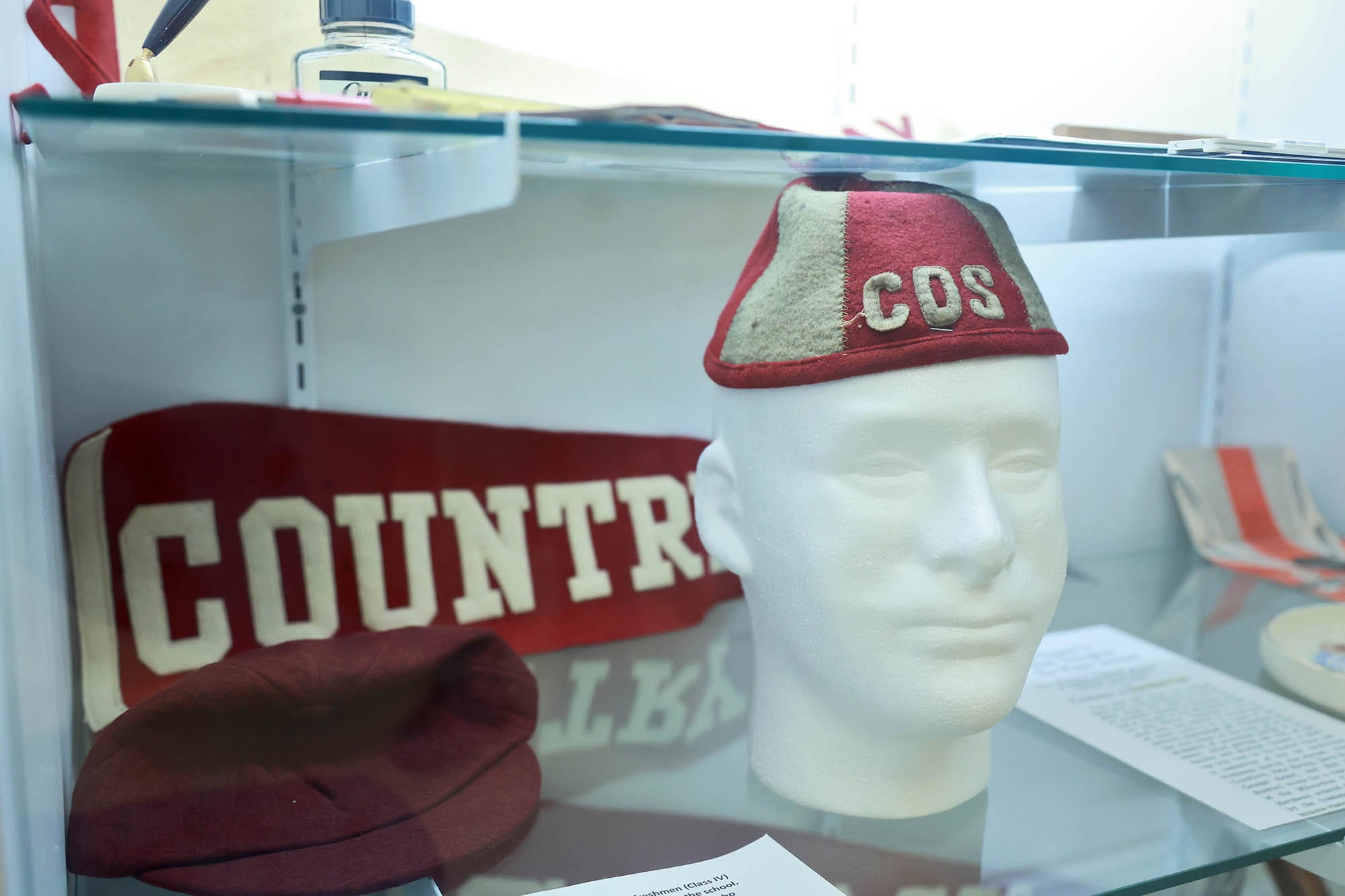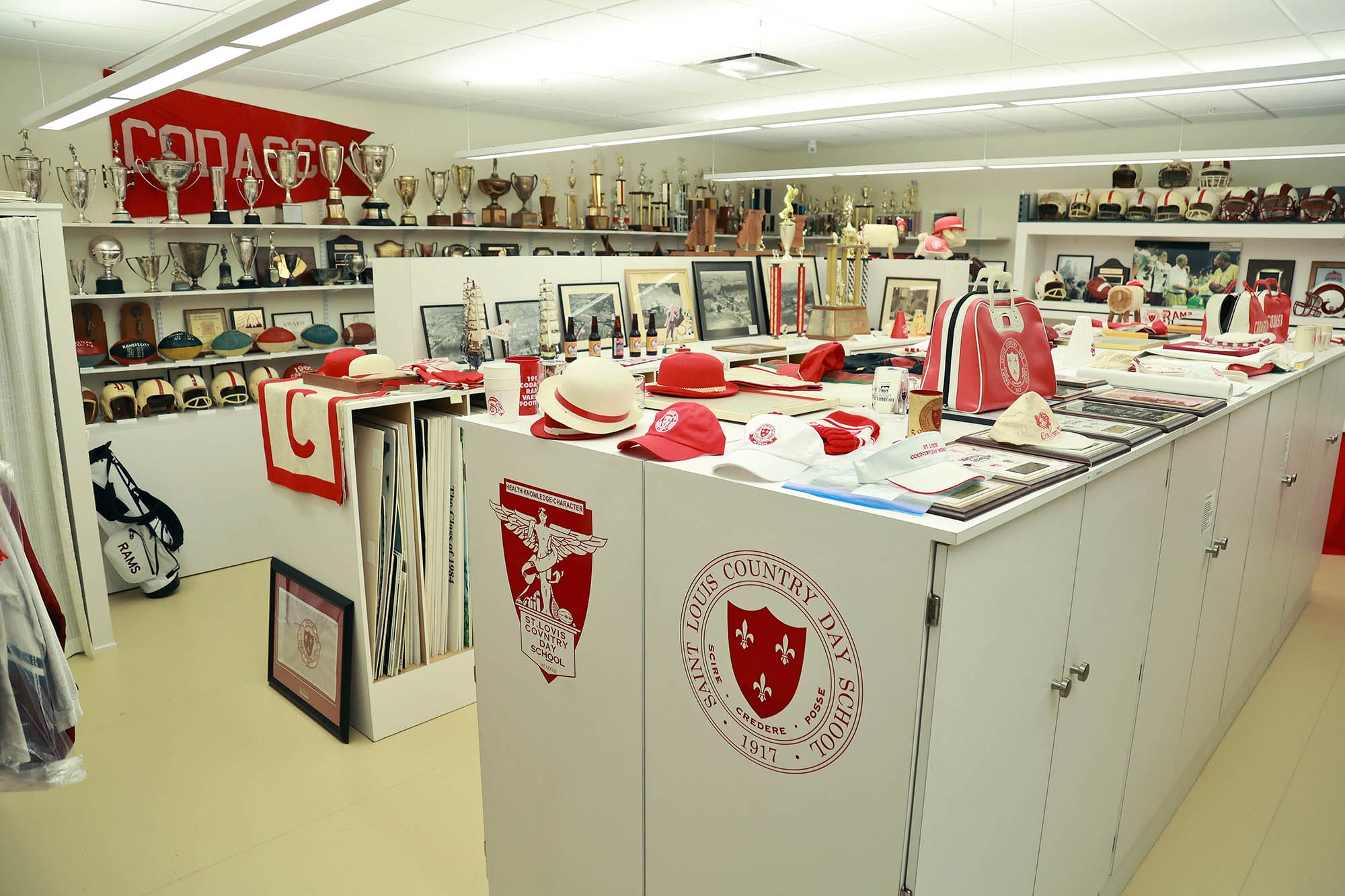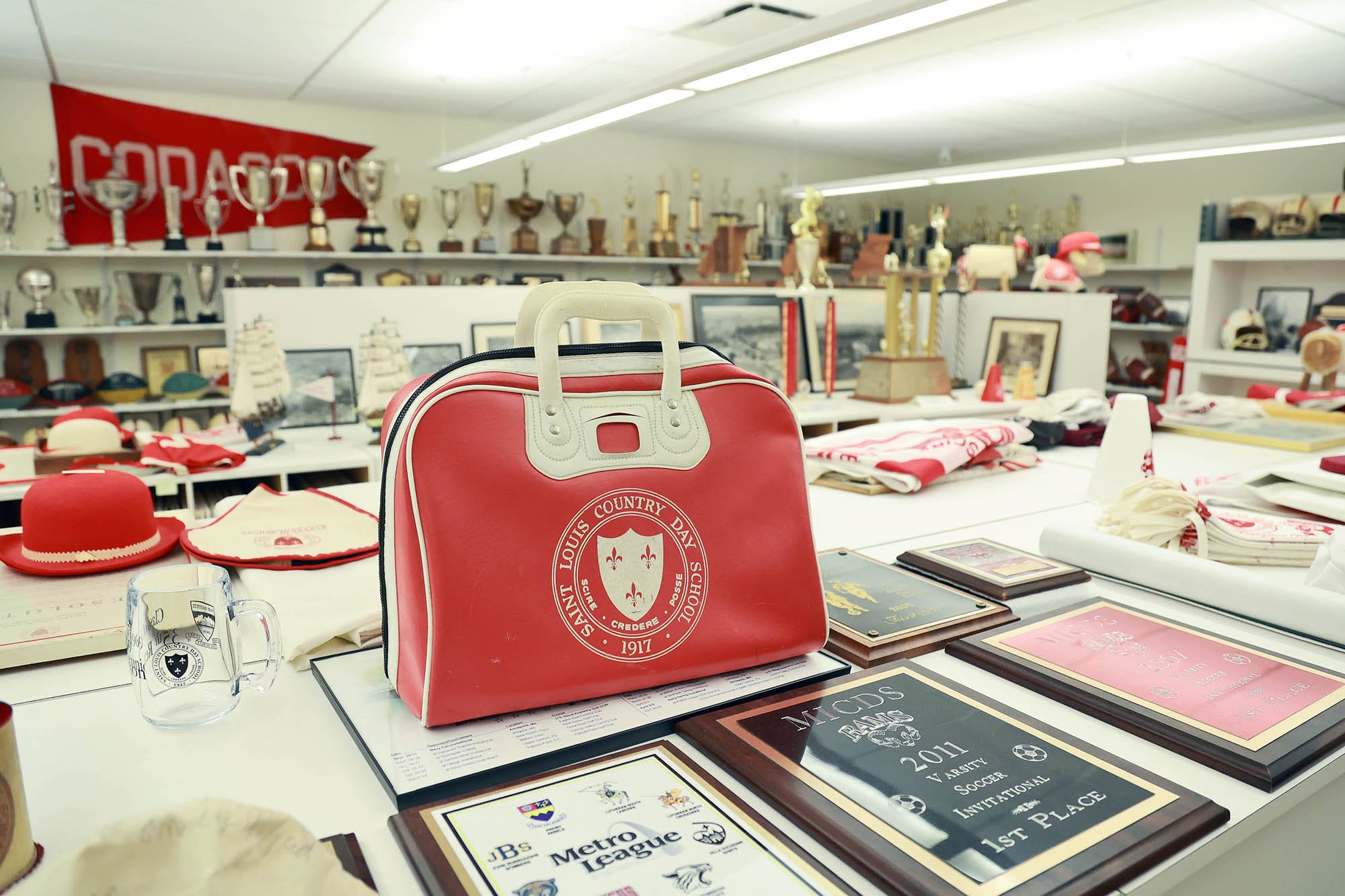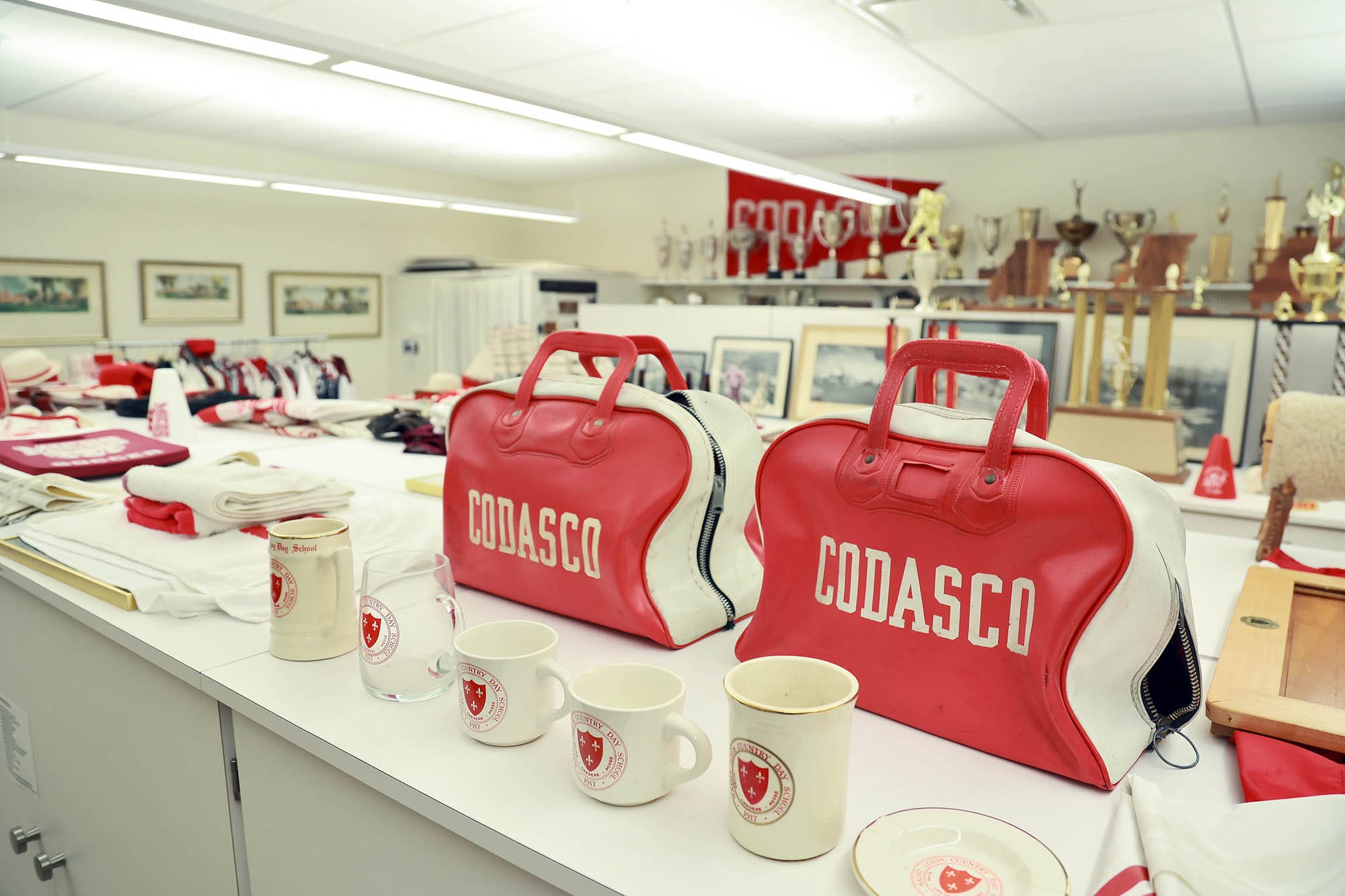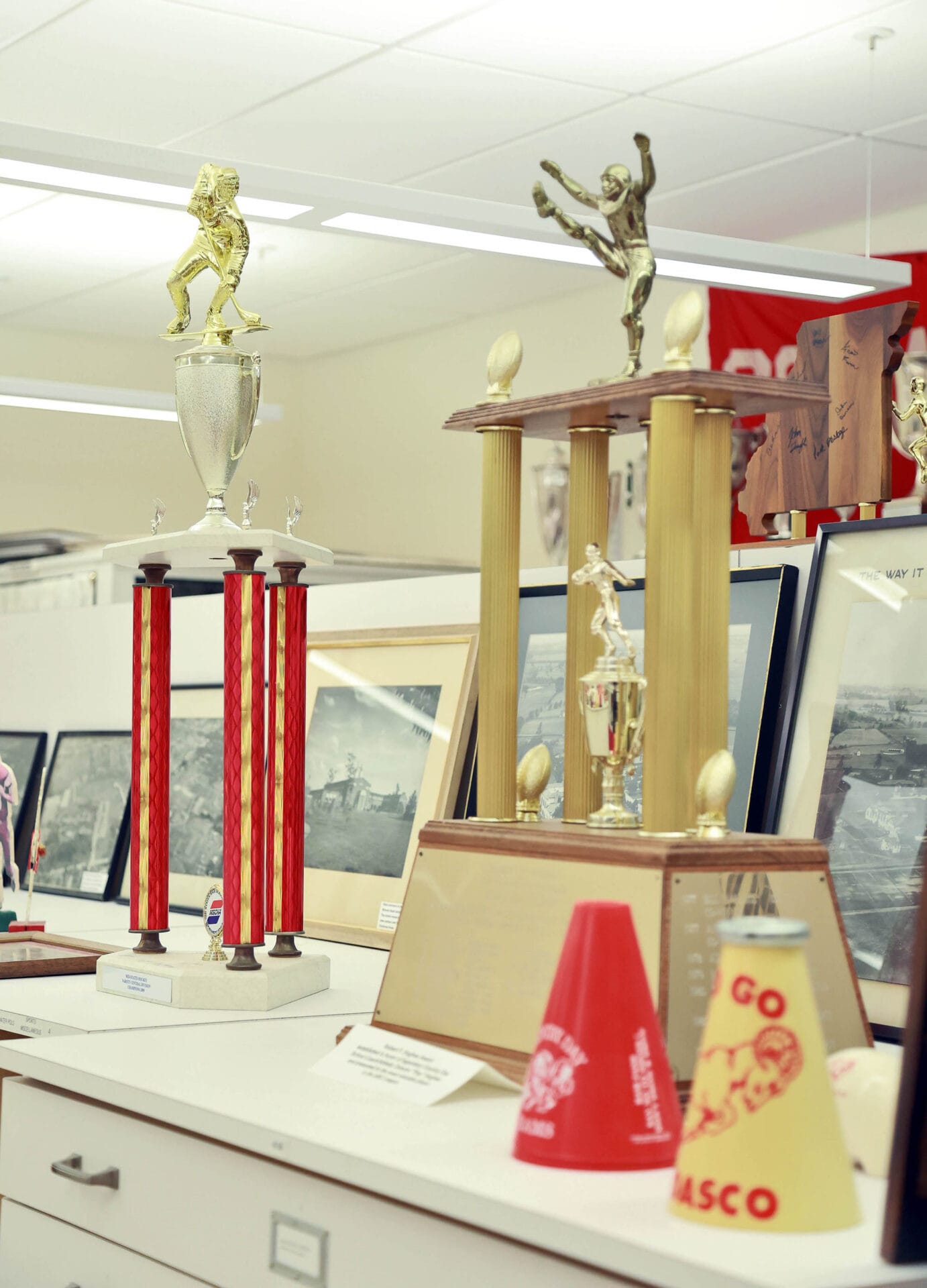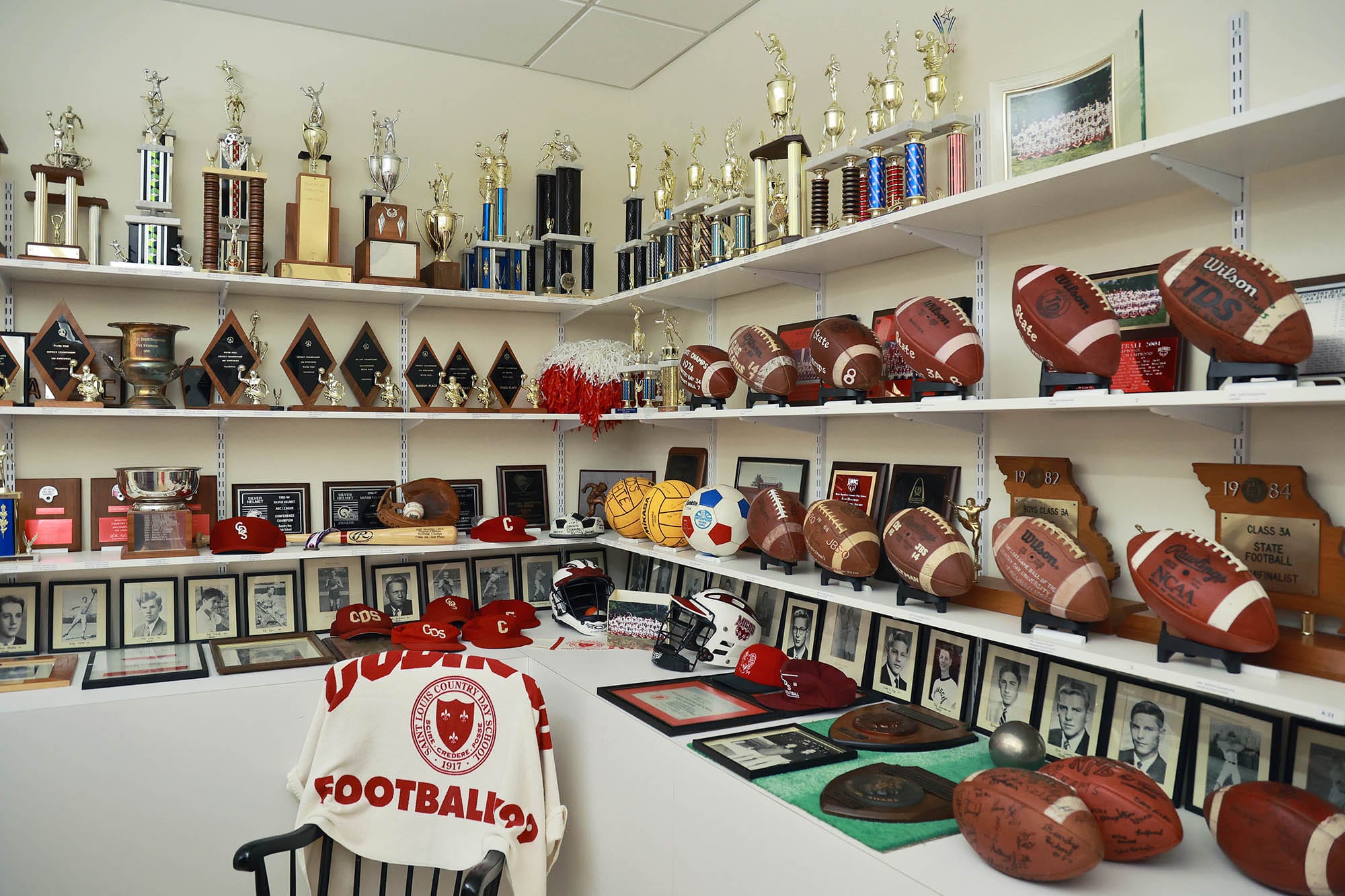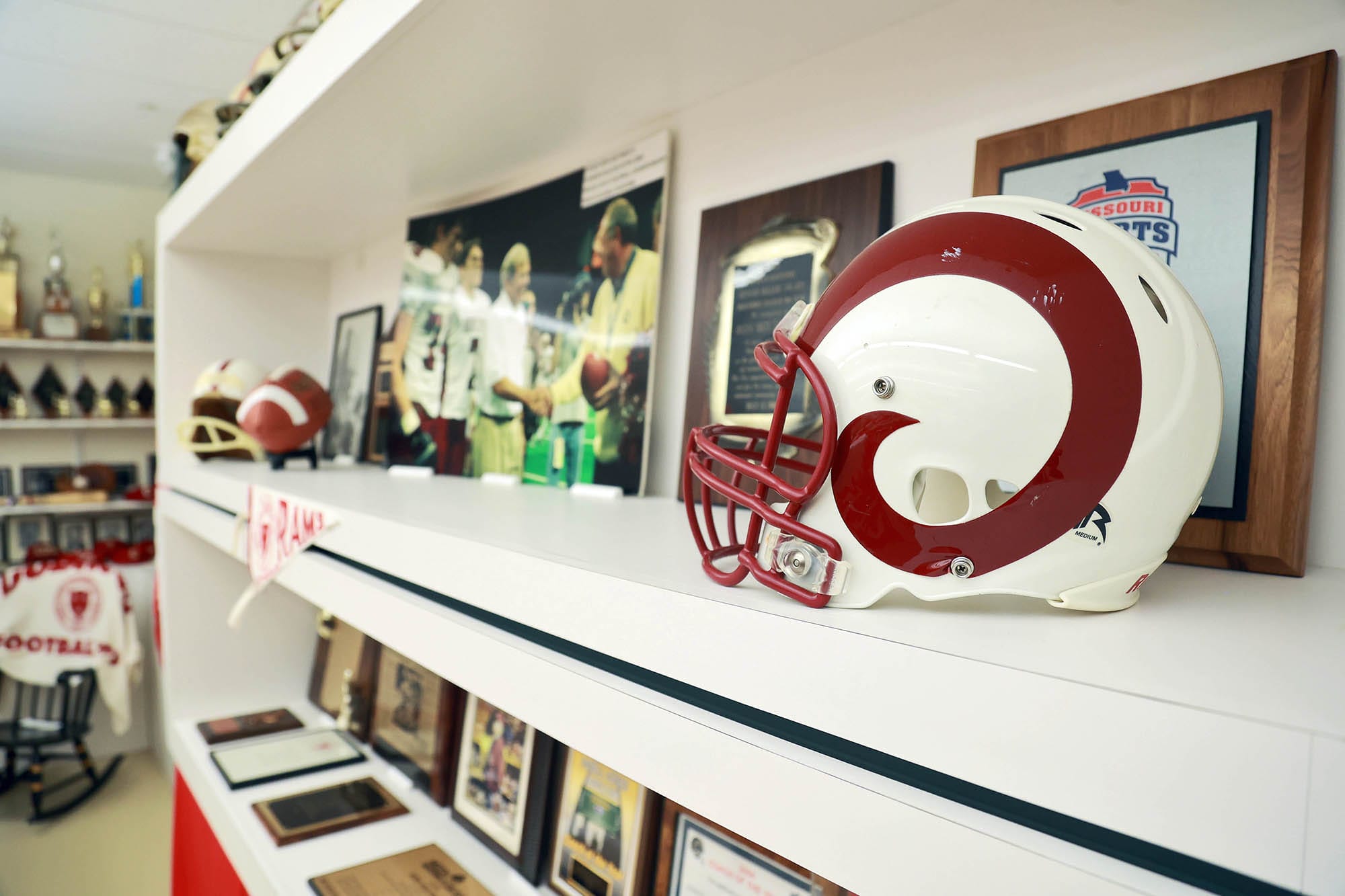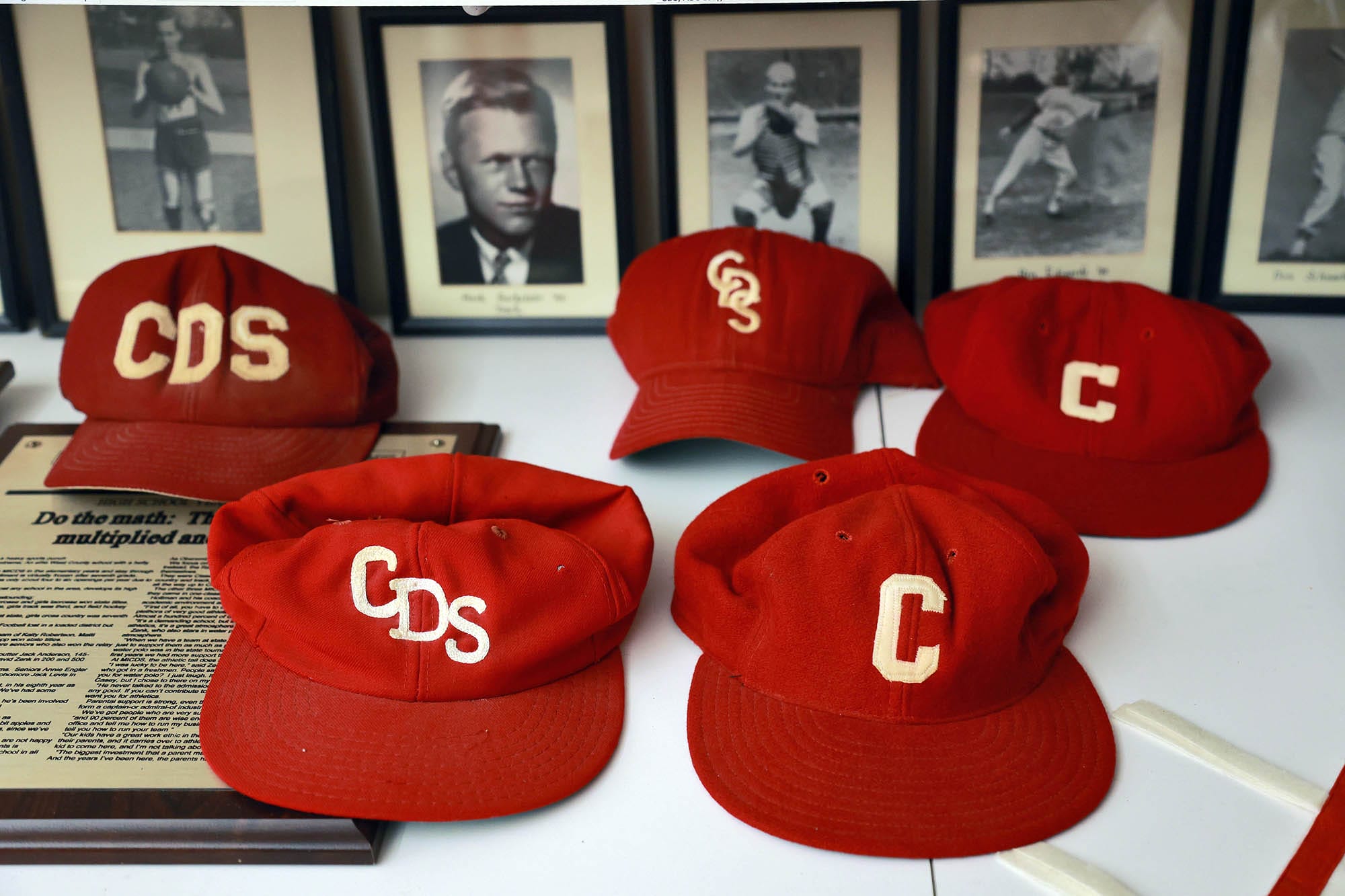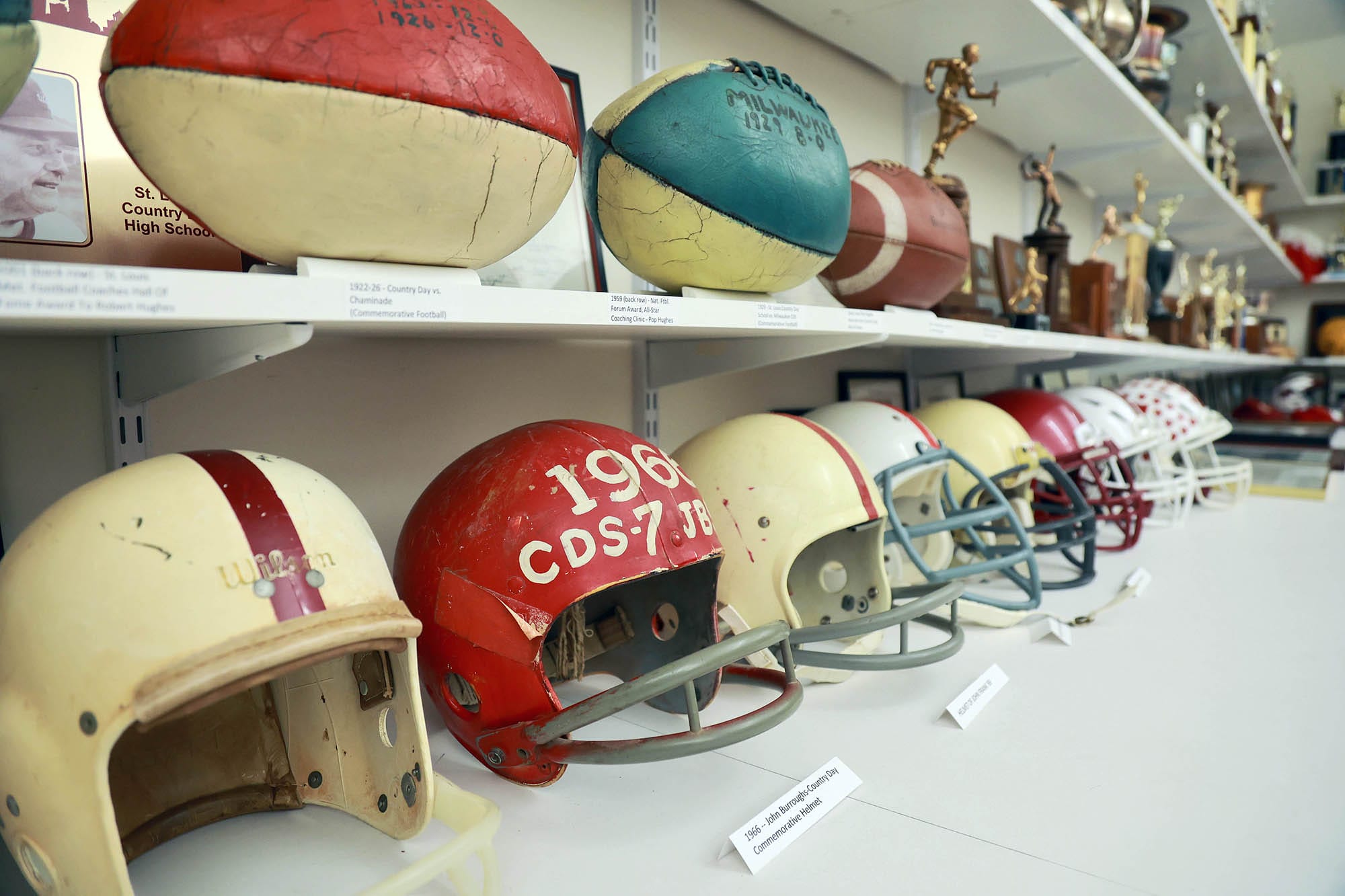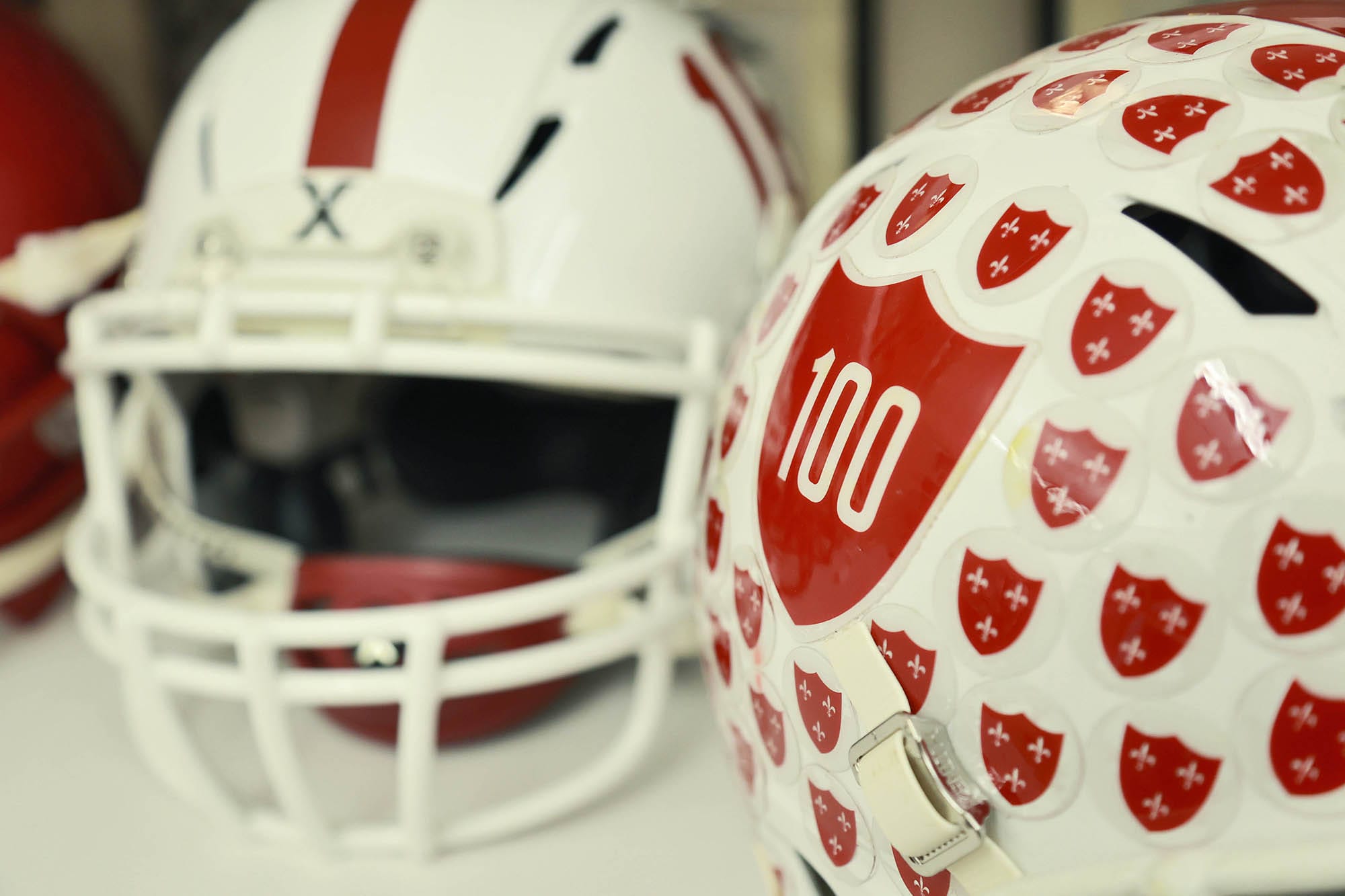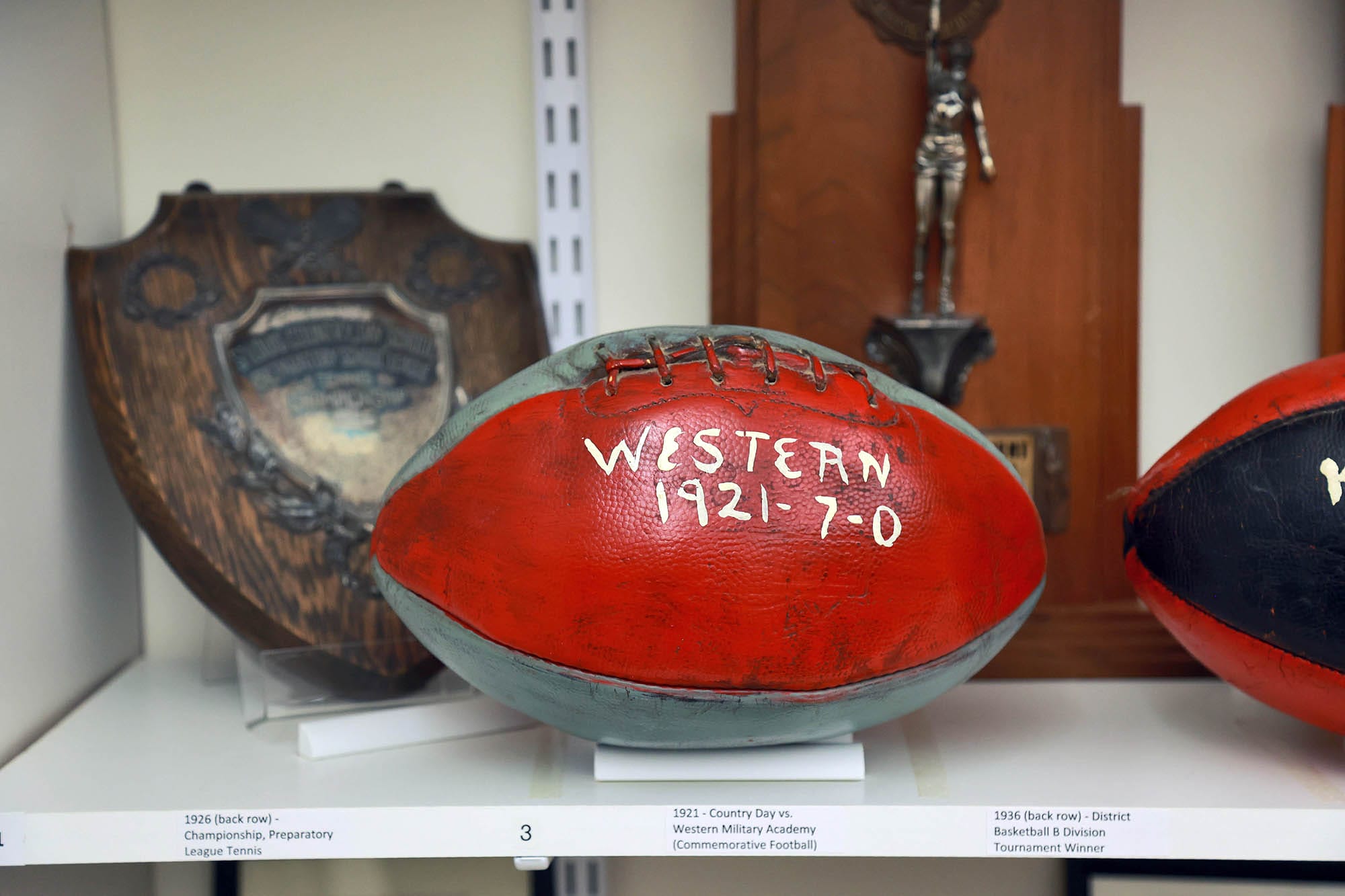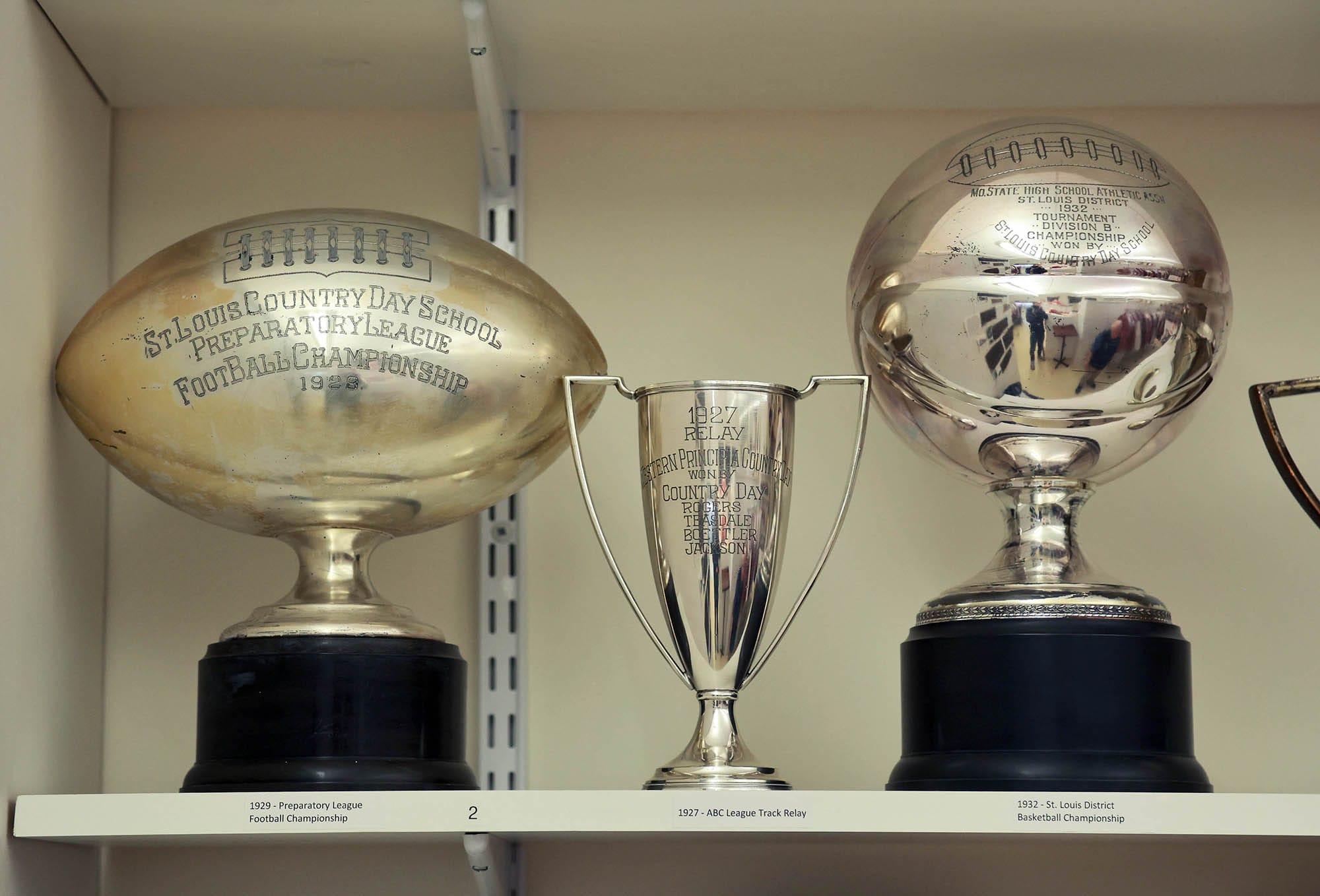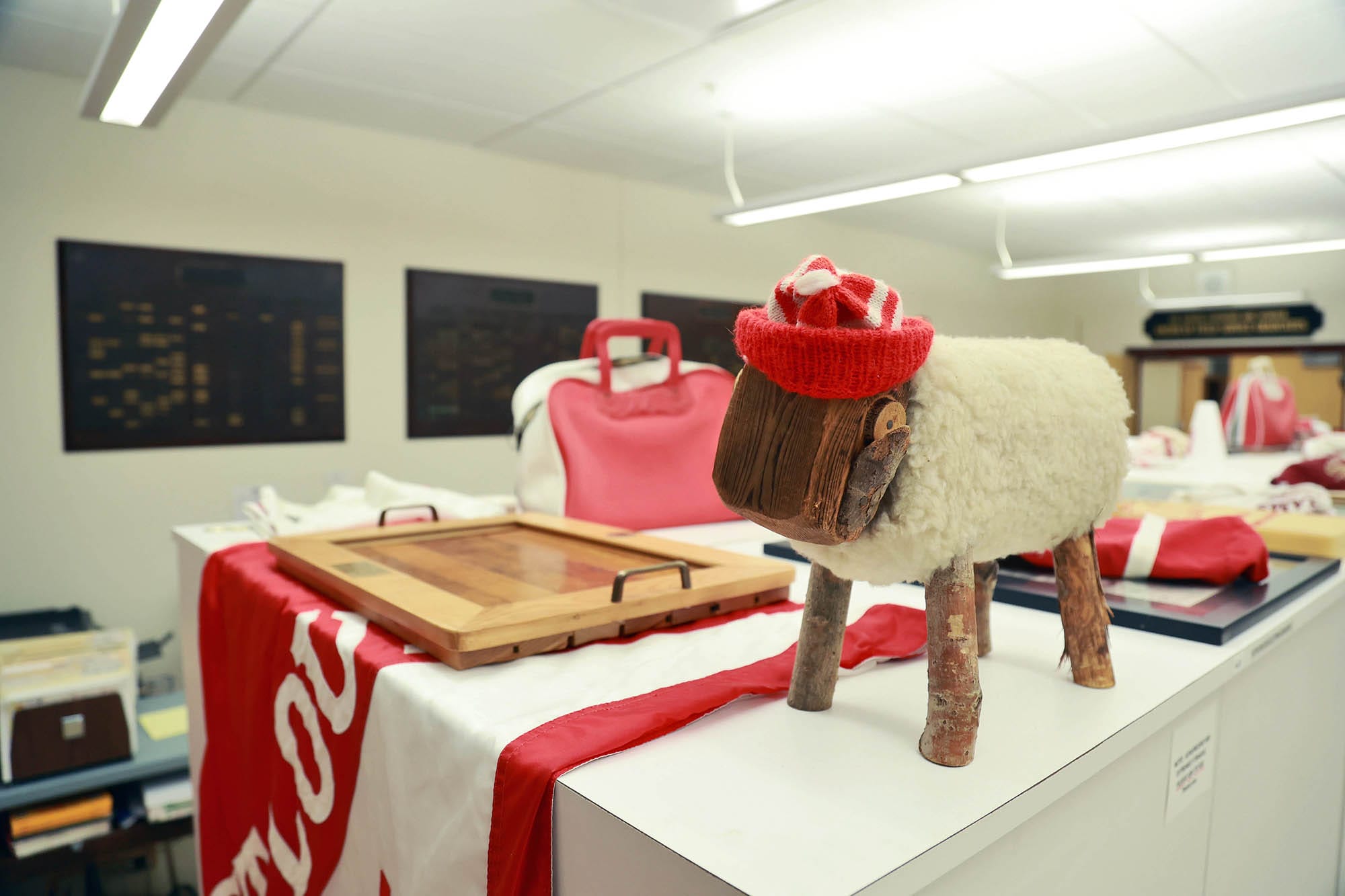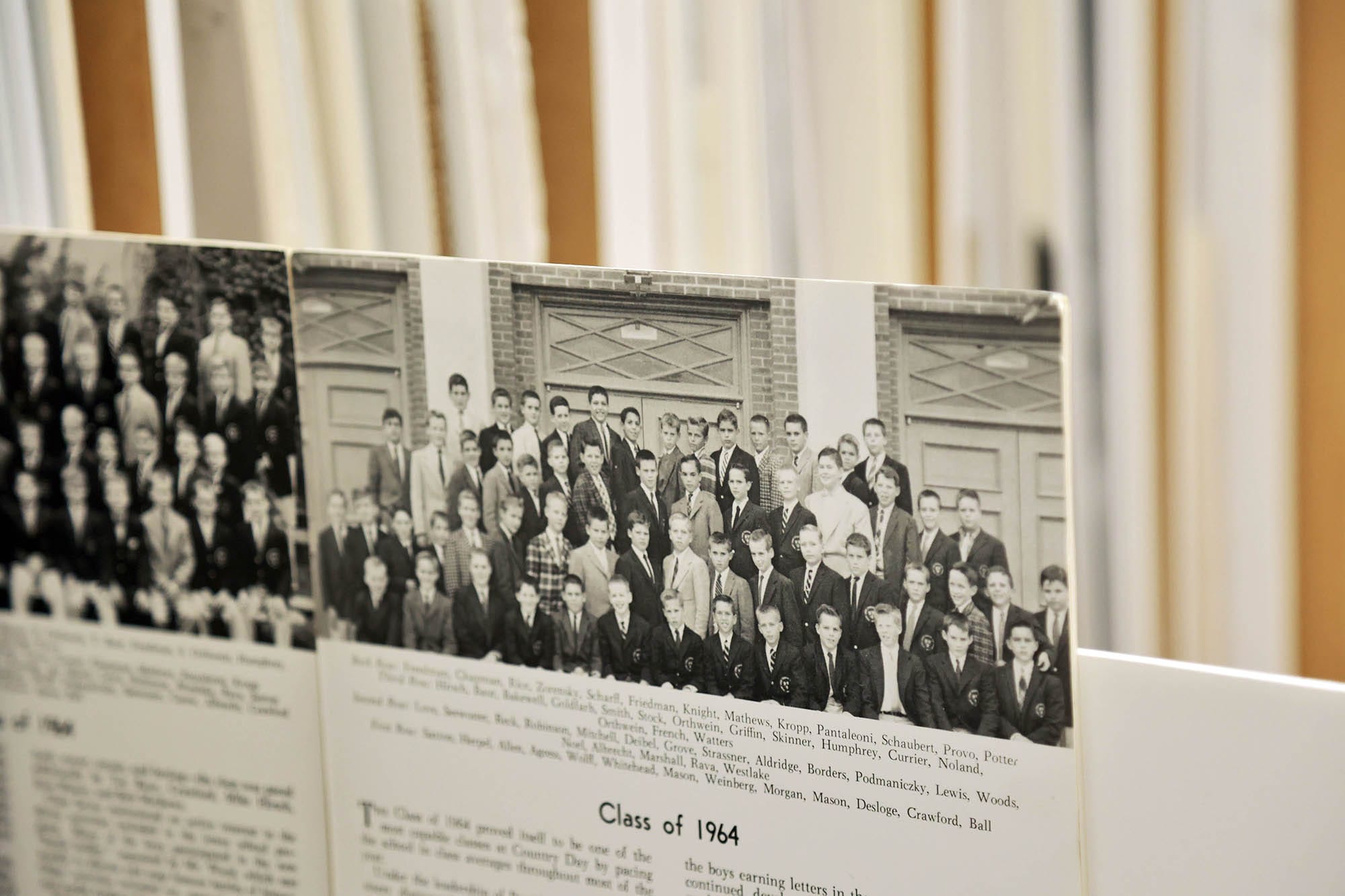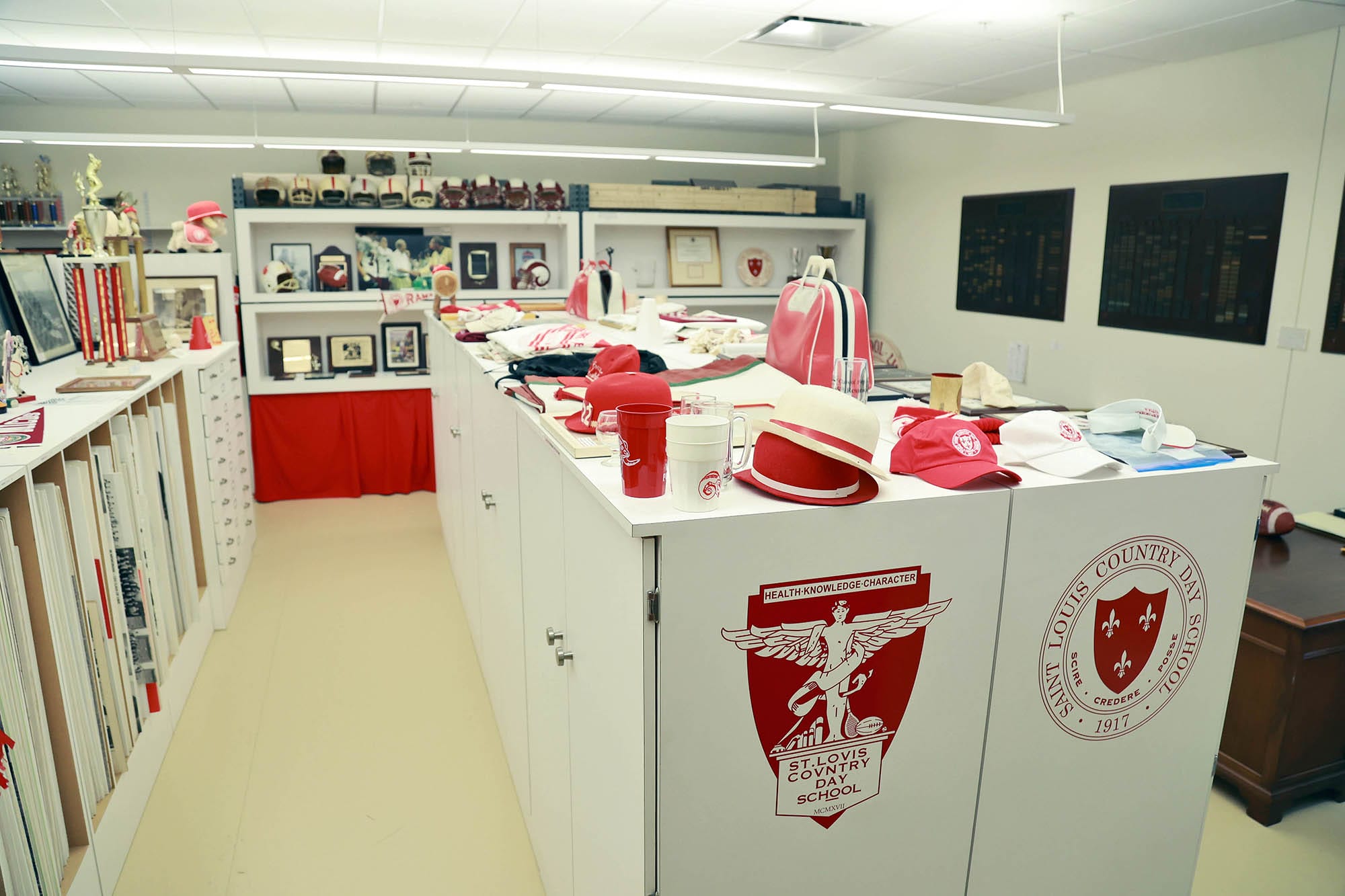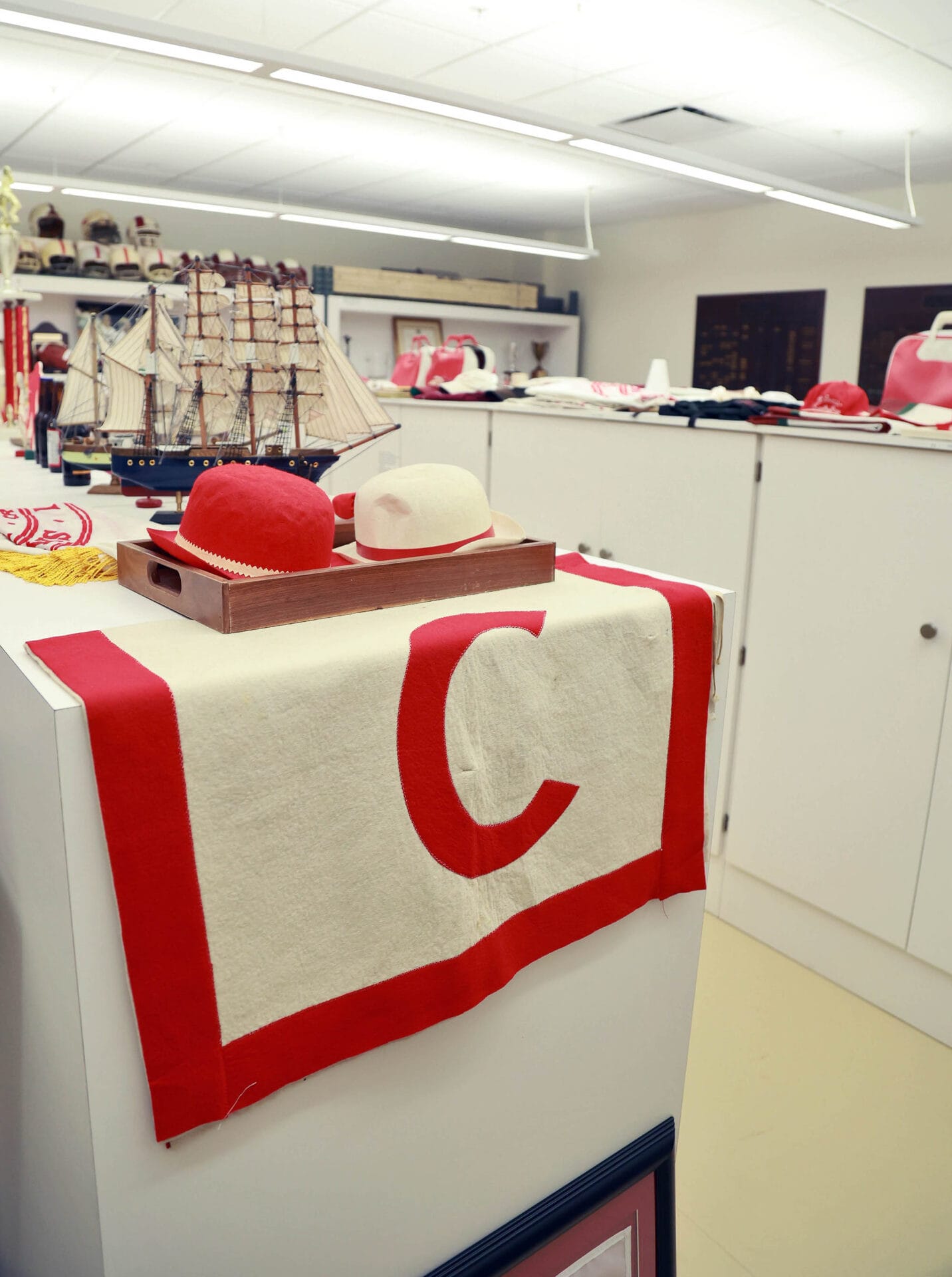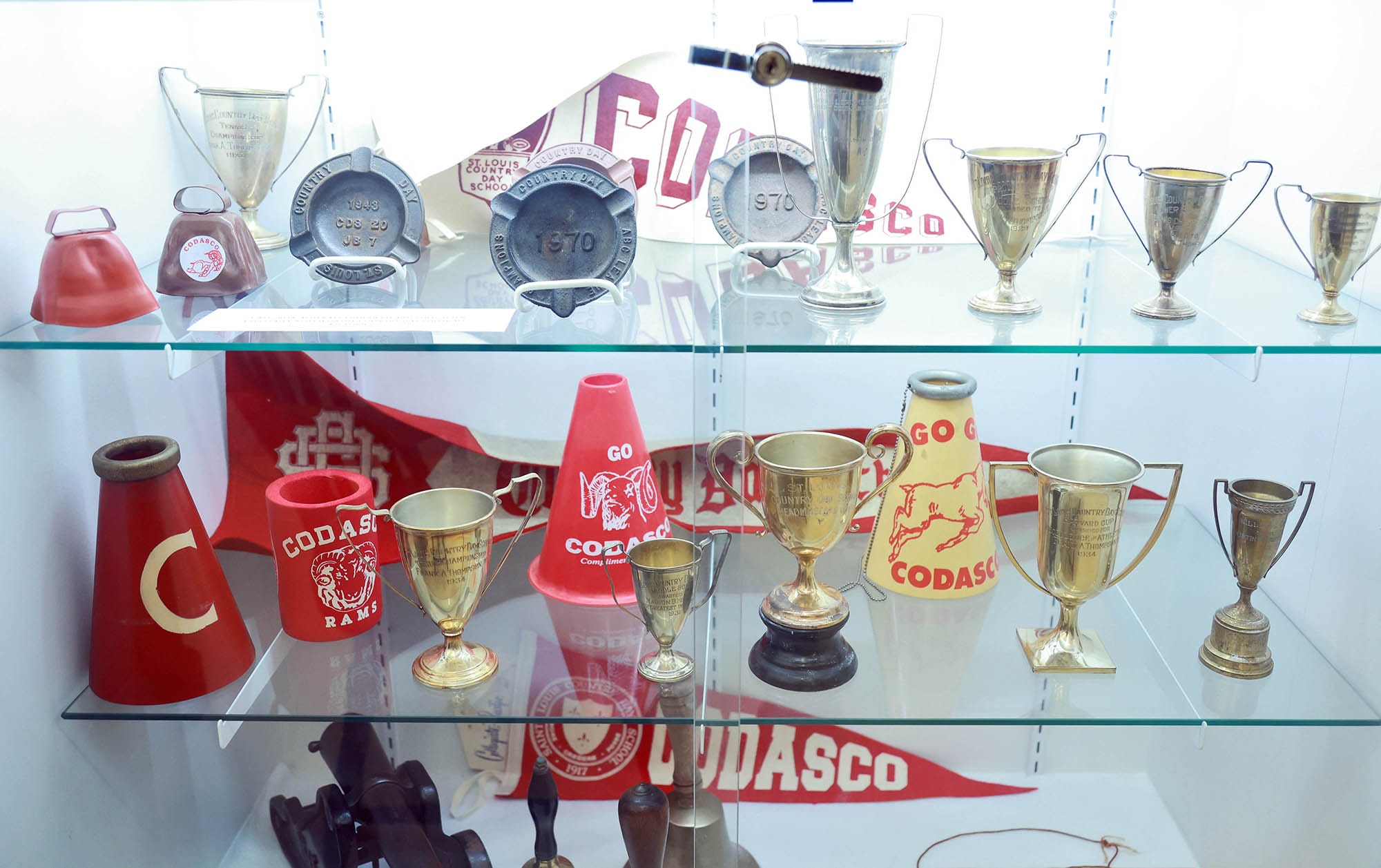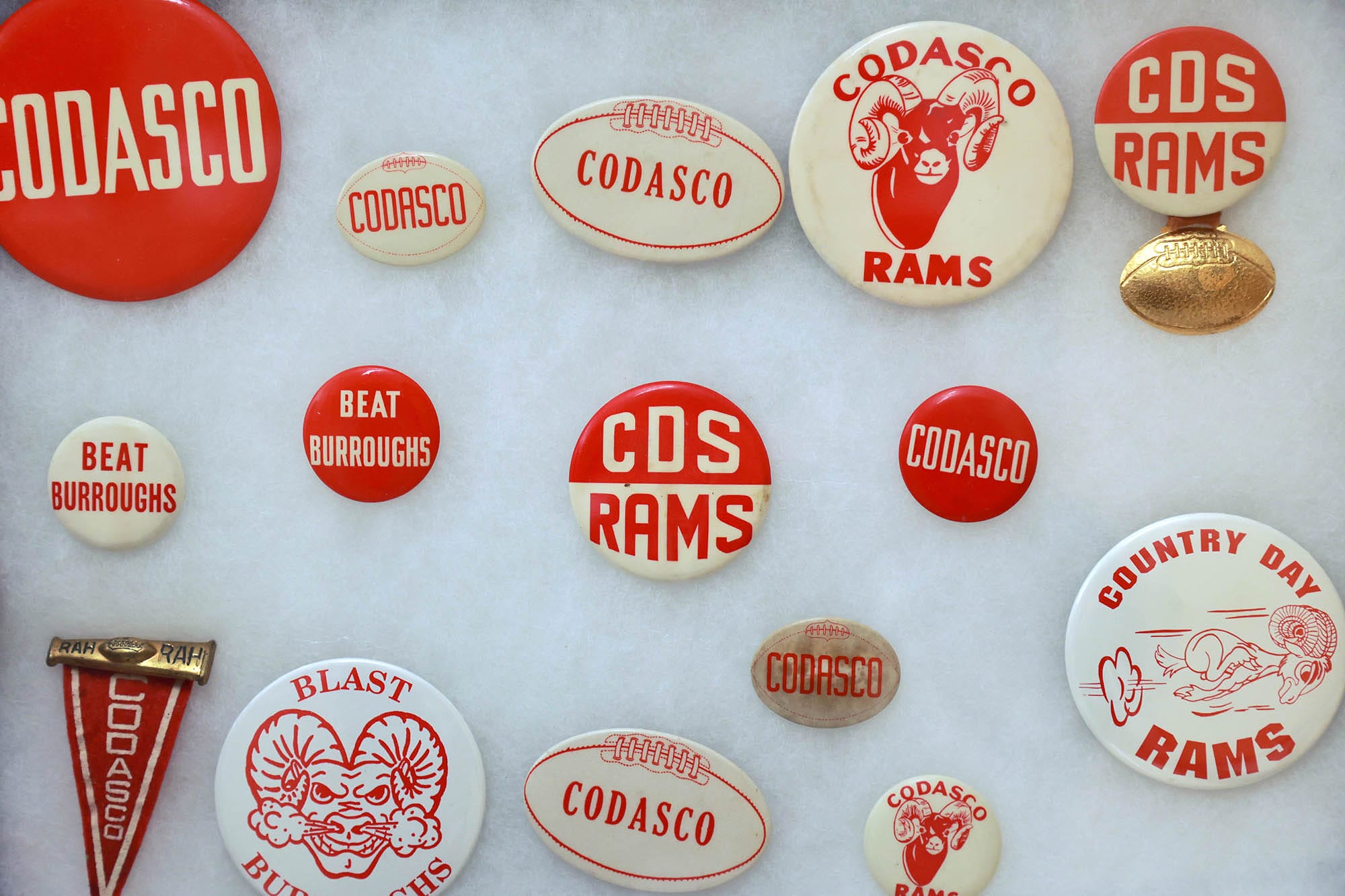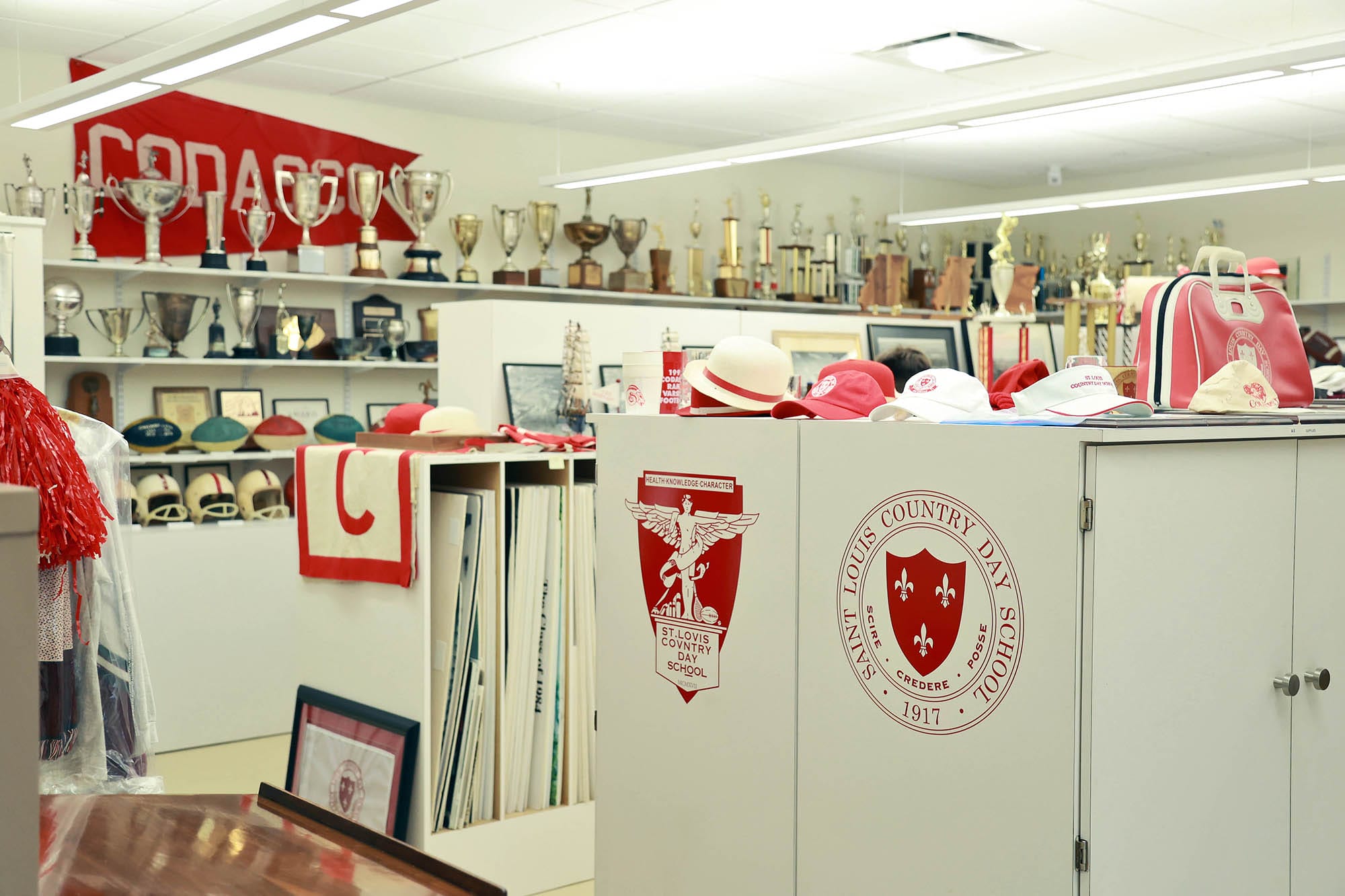Bringing the Past to the Present: The CDS Archives
Students visiting the lower level of STEM sometimes express surprise when, noticing an open door next to the fabulous Makerspace, they venture through it and discover the St. Louis Country Day School Archives.
Dating back to Country Day’s founding in 1917, the Archives is a volunteer-run function which gathers, preserves, and interprets mementos from throughout the school’s history, up to its merger with Mary Institute to form MICDS in 1992. It’s a fun, bright, inviting space which belies the image of dusty, musty, cobwebby historical relics sometimes associated with archives. Here is to be found the full range of artifacts which, collectively, tell the story of Country Day, from its creation on a then-rural campus next to the St. Louis airport through its relocation to Warson Road in the 1950s and its subsequent side-by-side existence with Mary I. Footballs that sailed through the air in games many seasons ago and helmets of players who threw them…blueprints of campus buildings…sports jerseys…dozens of smaller CDS-imprinted items sold by students to scrape together funds for the Junior Prom—the collections offer a glimpse at what boys of generations past experienced and represent a chronicle of the growth and evolution of Country Day.
Students especially get a kick out of vintage yearbooks, available for all graduating classes, in which they can find photos of fathers, grandfathers, and other relatives («He had HAIR then!»).
Much more than a static museum, the Archives houses carefully organized files containing photos and a wealth of information utilized by the Alumni and Development Office and other departments. Faculty members, alumni, and guests regularly inquire about long-ago students or simply «life and times» aspects of the school through the decades. The Country Day Archives actually began in 1917 with scrapbooks compiled by teacher-then-headmaster Robert H. B. Thompson, who from Day One saved drama programs, newspaper clippings, and all manner of printed materials that, today, form the heart of the Archives collections. Since then, many alums and teachers have contributed artifacts to the repository, which financially is supported only by donations. Add it all up, and it’s a relatively low-profile but engaging and valuable resource where our past comes alive to support today’s MICDS community.
As a volunteer activity with a very small staff, the Archives is open on an irregular schedule. Tours can be arranged for classes or other groups, so if you’d like to pay us a visit, contact Cliff Saxton ’64, one of the CDS archivists, at countrydayarchives@micds.org.
